Marketing Focus – How to deal with the media
Interacting with the media is a great way to generate free publicity for your business through public relations. Creating positive relationships with the media really helps, but it can be difficult to know how to handle them and getting it wrong can lead to trouble. This is why being correctly media trained and PR savvy is important, so you can always represent yourself and your brand in the best way.
This is a very big topic and we offer media training as part of our marketing training courses. This can be done face to face, when restrictions are lifted, but we can also offer it online, for anyone who want to be prepared to handle the media!
If you’re not ready for a media training course just yet, have a read of this article, for an overview of what you need to know and think about.
The Media
We are lucky on the Costa del Sol as our press environment is positive and in the main doesn’t tend to have aggressive journalists who are out to get you. If they are interested in a story they tend to run it as it is, or just modify the story slightly and their questioning is usually gentle and helpful, not trying to trip you up. Getting on well with the media outlets and helping them where you can and of course advertising if budget allows will help you to secure media coverage in a positive way. It is also important to really understand each media, their style, their readership, their features, as that way, you can offer them content which perfectly fits with their magazine, newspaper or website and so it’s easy for them to use.
However, if you start to deal with national and international media outlets, you need to take even more care and ensure that what you say cannot be taken out of context in a negative way and that you are fully prepared to deal with any questions that they may throw at you. Not all journalists are friendly, but they are all looking for a good story, so if you are helpful, give them positive and useful information and work with them in a timely manner to get what they need, they will normally be kind and positive.
How to deal with unsolicited media enquiries?
If there’s a big story breaking in your sector and you have a high profile you may be contacted by journalists looking for a comment or story. These unsolicited enquiries have the potential to be negative, but also offer a great opportunity for promotion, so the key is to handle it correctly. Do not feel you have to give an immediate response, simply take down all the details without making any comment and say you will get back to them as soon as possible. Have an official spokesperson who you feel confident speaking to the media and make sure you get back to them quickly as they will be on a tight deadline.
Creating Rapport with Journalists
For the long term, you want to have positive relationships with the media and so you need to treat them well. When possible, don’t force journalists to wait outside or restrict their movement in a negative way. Allocate a trusted staff member to them to help them, offer tea/coffee and biscuits, water, or a glass of wine and establish rapport.
During press events offer food and drink and information for them, introduce them to the spokesperson and VIPs and help them to film in a suitable location – the more you can do to help them the better they will feel about you and the company.
Develop Key Message Points and prepare for Success
Being prepared is the best way to succeed in interviews and preparing 5 key message points for your company that all employees should know, will prepare everyone for media contact and ensure the message is consistent and represents the company in the correct light.
In order to develop these points, first you need to gather the facts about your business and then channel that information into 5 key message points which focus on different aspects of your company and address all the key areas you think you could be asked. Once these are prepared you can get them approved by the MD or even the legal department to make sure everyone is happy with the information will be shared. Use your Key Talking Points to guide you, but do not memorize them like a script and therefore not answer any questions, this loses credibility and you don’t connect with your audience in the same way.
Once you are prepared, try to relax and be positive, remain alert but calm and take your time to respond to a tricky question. Don’t get defensive, make your point clearly and succinctly and correct factual errors if a journalist makes them but in a non-defensive way. Be clear and concise when giving answers and avoid answers which could be misconstrued or quotes which could be used out of context.
If you don’t know the answer to a factual question then just say you don’t know but, if there is merit in it for you, say that you’ll find out and get back to them. Use the company’s name regularly and if possible include contact details and locations to add to the power of the interview.
Shaw Marketing Services offer professional media training courses on the Costa del Sol which can be tailored to large companies, or smaller businesses who regularly contact the media. We can also act as the official media spokesperson for your company and provide quality Public Relations services. Please contact us to find out more.


